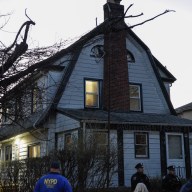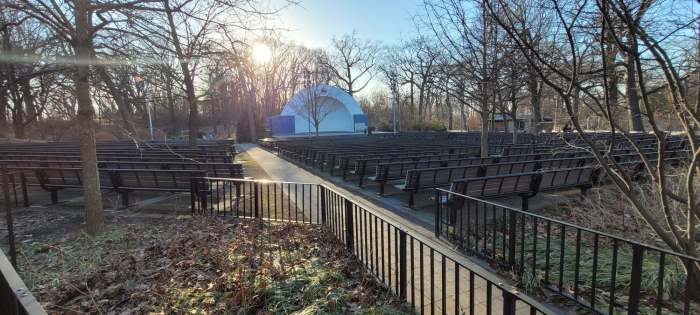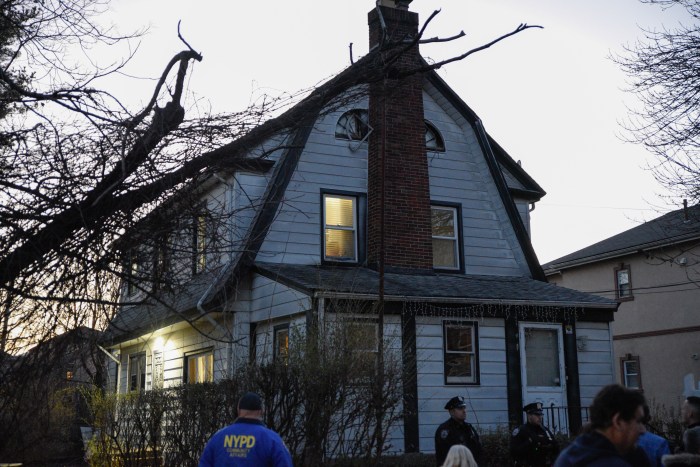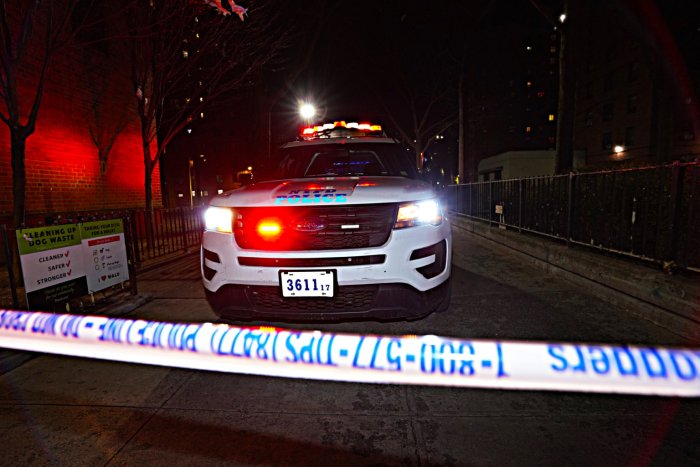By Courtney Dentch
The U.S. Coast Guard said Tuesday it has stepped up security measures in Jamaica Bay, including doubling airborne patrols, a 700 percent increase in boardings of suspicious vessels, and quadrupling the advance notice time required from foreign in-bound ships.
The five-point plan, dubbed Operation Neptune Shield, has been implemented at ports around the country and represents an overhaul of the Coast Guard’s security policy following Sept. 11, said Commander Michael McAllister, chief of operations for Coast Guard Activities, New York.
The plan is the largest port security operation since World War II, McAllister said. It also includes enhanced cooperation with other protection agencies, including local and Port Authority police, and prioritizing coastal security, he said.
The announcement came as part of a news conference held by McAllister, and U.S. Reps. Anthony Weiner (D-Forest Hills) and Vito Fossella (R-Staten Island) Tuesday.
“Sept. 11 taught all of us some very tough lessons, chief among them that terrorists will use unconventional means to reach their targets,” Weiner said. “Our security forces can never be too prepared.”
Before Sept. 11, the Coast Guard focused mainly on search-and- rescue operations, boater safety and boating violations, McAllister said. In the past seven months, however, the focus has shifted to port security, he said.
“It’s not a new mission but a new priority,” McAllister said. “We’ve gone from a firehouse mentality where we’re waiting for the call to the mentality of a cop on a beat.”
A part of that new priority has been increasing the boarding of foreign ships, McAllister said. Boardings have increased from 100 a year to 700 since Sept. 11, he said. The Coast Guard conducts investigative boardings on ships it believes to be a high risk before they reach the Verrazano Bridge, McAllister said.
Operation Neptune Shield also requires foreign commercial ships over 300 gross tons that are entering Jamaica Bay to provide information about the ship, its cargo, and its crew 96 hours before arrival, an increase from the previous requirement of 24 hours notice, McAllister said.
“It gives us an opportunity to decide whether there’s any threat posed by the ship well before it reaches our shores,” he said.
The Coast Guard has also beefed up security be adding about 100 reservists and auxiliary members to the active duty list in New York and conducting daily overflights of the Jamaica Bay area, McAllister said.
Although most security issues since Sept. 11 have involved airports, McAllister said the seaports have also been a major concern. More than 90 percent of all imported goods enter the country through the 360 commercial ports in the United States, he said.
“The average citizen may not even know how important the ports are to their everyday life,” McAllister said. “They just go down to the store and it’s there.”
Jamaica Bay is a critical area for Queens, home to not only commercial boat traffic but residential neighborhoods and one of the nation’s key airports.
“Jamaica Bay is neighbor to numerous residential communities in Brooklyn and Queens, is traversed by the Gil Hodges Memorial Bridge, and is buttressed by the John F. Kennedy Airport – all potential targets for terrorist action,” he said. “It is imperative that we act now to secure Jamaica Bay from terrorist encroachment, and this five-point plan is an important first step.”
Reach reporter Courtney Dentch by e-mail at TimesLedger@aol.com, or by phone at 229-0300, Ext. 138.
































